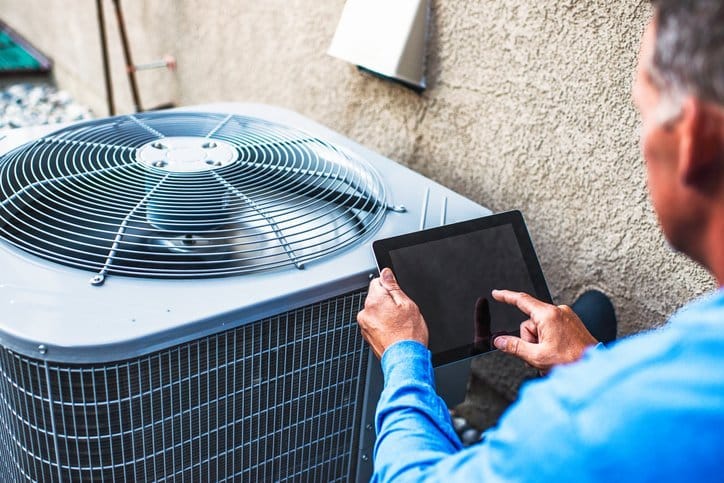Comprehending heating, ventilation, and air conditioning units might appear overwhelming, especially for people unfamiliar to house upkeep. HVAC refers to Heat, Ventilation, and Cooling, and this system has an important role in ensuring your indoor environment pleasant all year-round year. Regardless of whether it is the swelter of summer or the chill of winter, a well-operating HVAC system is essential for providing a cozy living space. Here, we will explore common HVAC problems and give you with effective solutions to maintain your system functioning well.
Many homeowners may not recognize the necessity of regular HVAC maintenance until some problem occurs. Including peculiar noises to inconsistent temperatures, these issues can cause increased energy bills and costly repairs if not addressed promptly. By yourself with frequent HVAC issues and understanding how to address them, you can save more time and money while making sure your home remains a comfortable refuge. Let us delve into the most frequent HVAC challenges and explore effective ways to address them.
Grasping HVAC Systems
Heating, Ventilation, and Air Conditioning, terms that signify heating, ventilation, and air conditioning, is a system intended to manage the indoor climate of home and business spaces. By modulating temperature, humidity, and air quality, HVAC systems keep environments comfortable throughout the year. These systems include various components, which encompass furnaces, air conditioners, ductwork, and thermostats, all working together to provide effective heating and cooling solutions.
The performance of an HVAC system depends on three core elements: heating, ventilation, and air conditioning. The heating component typically uses a furnace or heat pump to elevate the temperature of the air during chilly months. Ventilation entails the exchange of indoor air with clean outdoor air to boost air quality. The air conditioning part lowers the temperature of and dehumidifies the air, creating a comfortable atmosphere when temperatures rise. Comprehending how these elements operate together is essential for effective maintenance and operation.
Routine maintenance of HVAC systems boosts performance but also extends their lifespan. Simple tasks such as replacing air filters, cleaning ducts, and scheduling seasonal tune-ups can meaningfully improve efficiency and reduce energy costs. Overall, a thoroughly cared for HVAC system promotes a healthier living environment, guaranteeing that air quality is as good as possible and comfort is enhanced, in spite of the season.
Common HVAC Problems and Resolutions
One of the most common problems homeowners experience with their HVAC systems is poor heating or cooling. This issue can often stem from a dirty air filter, which limits airflow. Regularly inspecting and changing air filters every 1 to three months can assist maintain proper airflow and improve system efficiency. Additionally, examining and maintaining the outdoor condenser unit can enhance cooling performance during warmer months, making sure your system works effectively.
Another common problem is strange noises coming from the HVAC unit. These noises can indicate worn parts, worn bearings, or debris in the system. If you hear clanking, screeching, or clicking sounds, it’s important to address them promptly. Checking the unit and looking for any visible issues is a good start, but if the issue continues, calling a qualified technician for a thorough inspection might be necessary to avoid further damage.
Finally, excessive cycling of the system can point to an issue known as rapid cycling, where the HVAC unit turns on and off excessively frequently. This can be caused by issues like an oversized unit or a malfunctioning thermostat. To resolve this, ensure that the thermostat is correctly calibrated and consider consulting with an HVAC professional to assess whether your system is properly sized for your home. Keeping an eye on these common issues can assist extend the lifespan of your HVAC system and improve its performance.
HVAC Maintenance and Efficiency Tips
Ongoing maintenance is crucial for maintaining your HVAC unit running effectively and optimally. Begin by replacing your air filters every one to 3 months, as contaminated filters can block airflow and cause the system to function harder, resulting to increased energy bills. Additionally, schedule annual expert inspections to detect any potential issues before they worsen. my sources ensures your system remains in optimal condition and can prolong its lifespan.
Maintain your outdoor unit free of obstructions, such as tree leaves and soil. This not only enhances airflow but also prevents your system from excessive heat. It's also important to inspect your insulation, especially around air ducts and pipes, to minimize energy loss. Proper insulation keeps your home cozy while decreasing the strain on your HVAC system.
Employ smart thermostats to enhance heating and cooling schedules based on your lifestyle. These devices can greatly cut energy consumption by adjusting temperatures automatically when you are not home. Furthermore, consider upgrading to energy-efficient models and features, such as variable-speed motors and smart zoning systems, which can improve comfort while lowering your energy bills over time.

